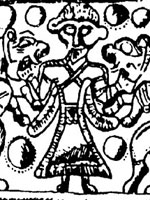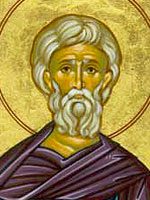Gilgamesh

Written four thousand years before the birth of Christ, this story found etched on clay tablets and unearthed in modern-day Iraq is the oldest literary text known to man. It tells the story of Gilgamesh, a Sumerian king determined to seek out the gods in paradise and reclaim man's right to immortality. The story claims that only one human had ever achieved immortality: an antediluvian king named Utnapishtim, whom the gods spared before they destroyed the world in a flood. In the epic, Utnapishtim tells Gilgamesh that immortality lies with a species of plant that exists only at the bottom of the ocean. Gilgamesh seeks out the flower of eternal life, but just as he is about to reach it, a serpent steals the plant and Gilgamesh must return home empty-handed.
(See chapters: 31, 35)
Enoch

Written in the second century B.C., it is attributed to Enoch, potentially the first biblical prophet who did not have to die in order for Yahweh to take him to Heaven. The book goes into great detail about the fall of the angels and the reasons God was so determined to destroy mankind with the Great Flood. This book was almost unknown in Europe until the nineteenth century when copies were introduced from Ethiopia. But there is substantial evidence to suggest John Dee had privileged access to the book's contents as early as the sixteenth century.
(See chapter 27)